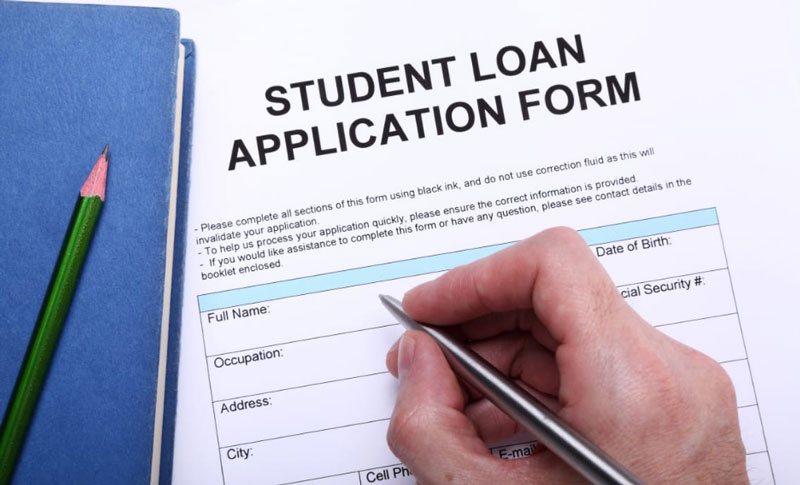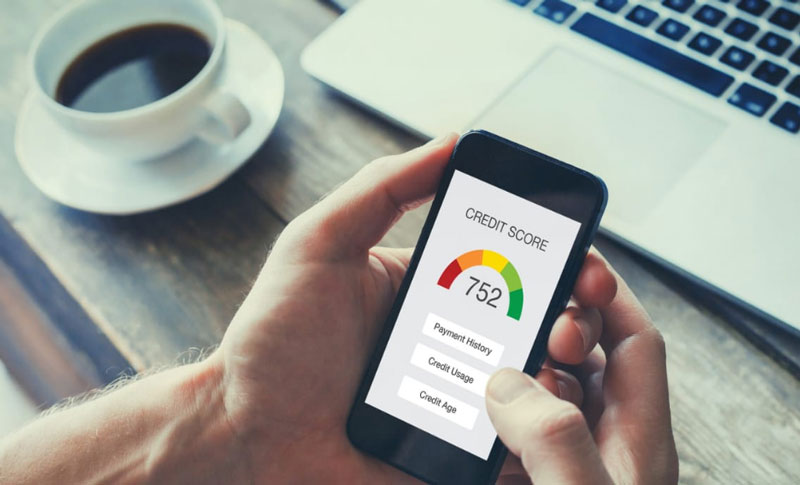Everything You Need To Know About Student Loan Deferral
Oct 02, 2023 By Triston Martin
A student loan deferral is an option for borrowers to delay their monthly payments while in school and until they graduate with a degree.
It's one of the four federal student loan repayment plans, which also include a 10-year plan, an extended 25-year plan, or income-based repayment (IBR). While it may seem like an easy decision that delaying your payments should hurt your credit score and make it more difficult to obtain future loans or lines of credit, this isn't the case.
What is a Student Loan Deferral?
A student loan deferral is a grace period, typically while you're in school, and it can be either paid or unpaid, depending on your loan type.
During this time, which can last up to six months for some federal loans and an entire year for others, your lender won't require monthly payments. However, interest will still accrue during this time.
Who Can Get a Student Loan Deferral?
According to the U.S. Department of Education, students who return to school full-time at an eligible school after July 1st and before Sept. 30th qualify for a deferment, as long as they meet the other qualifications for a deferment.

Using Your Deferment to Get Credit Lines
Students who have federal loan deferments may still be able to get a credit line, like a car loan or credit card.
Depending on your loan type and what credit cards you have open, you may be required to pay an annual fee or interest during your deferment period. However, if you don't use the money that is a non-tax deductible interest during this time, it will not show up in your credit report.
Student loans can be a daunting financial burden. In addition to paying out-of-pocket tuition, some students also need to take out loans to help with living expenses and other costs associated with getting an education.
The problem is that not all student loans are created equal--some have much more favorable terms than others. For example, federal student loan deferments allow you to put your monthly payments on hold for a variety of reasons including continuing education or economic hardship.
The question is: "will deferring my student loan hurt my credit?"
The answer is: that it depends on the circumstances. A deferment is typically considered a "good thing" from a credit perspective, so long as you understand the implications that come with it and how long the deferment period is. Let's look at what qualifies you for a deferment and why you may want to consider applying for one.
School Deferment: Sometimes, the best reason to defer your student loan payments is for school. If you know that you will be taking a heavy course load and need the time to complete your studies, this could be a good reason to apply for an official deferment.
Sometimes the best reason to defer your student loan payments is for school. If you know that you will be taking a heavy course load and need the time to complete your studies, this could be a good reason to apply for an official deferment.
Economic Hardship: If you are going through some sort of economic hardship, such as unemployment or another financial burden like a medical bill, it may be wise to apply for a deferment so that your monthly payments can be put on hold indefinitely.
If you are going through some sort of economic hardship, such as unemployment or another financial burden like a medical bill, it may be wise to apply for a deferment so that your monthly payments can be put on hold indefinitely.
How Will Getting a Student Loan Deferral Affect My Credit Score
A student loan deferment will usually have a positive impact on your credit score. This is much different from an actual student loan forgiveness program because there is no negative impact of having a deferment in place.
Instead, you are still complying with the terms of your agreement and making payments on time. As long as you understand that interest will continue to accrue while this payment plan is in place and pay off your outstanding balance when the deferment period ends, there should be no problem with the lender holding you accountable for any debts incurred.
There are many reasons why you may want to apply for a deferment. If you are concerned about the impact it may have on your credit score, use a credit monitoring service to keep abreast of any changes. This will help ensure that your score is not adversely affected while the deferment is in place.
Requirements For Loan Deferment
There are a few things that you need to be able to take advantage of this opportunity. If you want to apply for a deferment or know what your options are as far as loan options go, here's what you need:
Proof that your situation qualifies as a hardship (for example low income, bankruptcy, disability). You can get this by filling out and submitting an application form with your school's financial aid department. The form asks for various assets and debts like bank statements and tax forms.
This is very important, as a deferment is only given to people who are truly in need and unable to pay. You don't want to be added to a loan that you can't afford to pay back.

Currently owe less than $3,500 total on federal, state and private loans. This doesn't mean that your other loans are not considered; they are just not taken into consideration. So if you have more than that, you'll have to find other ways of paying it off or wait for the deferment period to be over before applying for more aid (which happens a long time).
Be able to show proof of income and the ability to pay off the loans. The check stubs and pay stubs are used for this. If you don't have any, you can use tax returns if you were employed that year.
Conclusion
Student loan deferral can be a helpful way to buy yourself sometime when you’re struggling to make your monthly payments.
However, it’s essential to understand how student loan deferral will impact your credit score and overall financial health before deciding whether this is the right option for you.
If you have any questions about student loan deferral or want help understanding how it will affect your credit score, reach out to our team of experts today. We’re happy to help!

The Fast and the Refund-ious: A Guide to Claiming Your Tax Refund Quickly
Mar 18, 2024
Get your tax refund fast and furious with our ultimate guide! Claim what's rightfully yours with ease and speed; no Vin Diesel required.

Analyzing the Value of Tuition Insurance: Is It a Smart Investment?
Feb 22, 2024
Tuition insurance ensures financial protection in unplanned situations such as untimely illness or fraud. Learn about it in-depth before purchasing this insurance

Day-Trading the Non-Farms Payrolls (NFP) Report
Feb 14, 2024
The Non-Farms Payrolls report is one of America's most anticipated news announcements. It provides economists with a picture of how well the economy is doing in terms of employment or otherwise. How can day traders take advantage of this opportunity and trade the NFP report?

Kickstarting Your Credit Journey: 8 First Credit Card Options to Consider
Feb 02, 2024
Explore top credit card options for first-time users to build a positive credit history, with insights on responsible card usage and financial tips.

Find Out: How to Calculate PV of a Different Bond Type With Excel?
Dec 22, 2023
The worth of a future stream of cash flows is known as its present value (PV). Stocks, bonds, real estate, and annuities are all valued using PV analysis. FV and PMT can be present, but only one can be left out. The initial investment amount is considered in NPV, distinct from PV..

8 Must-Know Aspects of the Tomo Card: A Comprehensive Guide
Feb 01, 2024
Explore the revolutionary Tomo card, a digital banking solution offering user-centric services, multi-account integration, low fees, and effective financial management tools.

How to Pay Off a Mortgage More Quickly
Dec 04, 2023
Mortgages are long-term loans that people get to finance real estate acquisition. A mortgage is a substantial financial commitment that might endure for decades, but it also makes it possible for people to become homeowners. Some homeowners may need help with the standard 30-year mortgage term.

What are IRS Payment Plans – A Detailed Guide
Dec 18, 2023
Are you interested in learning about the IRS payment plans and how they can benefit you? Then this article is just for you.

Exploring the Top 9 Low-Cost Brokers of 2024: A Complete Review
Mar 15, 2024
Explore the top 9 low-cost brokers of 2024, from Fidelity Investments to Acorns, and make intelligent investment decisions with ease

Methods Of Debt Consolidation How Does Debt Settlement Work
Feb 19, 2024
Individuals can settle their debt by making a one-time payment to a creditor in return for the cancellation of some or all of their debt. To effectively negotiate a debt settlement plan, you must cease making the monthly minimum payment on that debt. These payments will accrue late penalties and interest, negatively impacting your credit score.

All About a Mortgage Accelerator Loan
Jan 25, 2024
Several other factors must be taken into account before settling on a course of action. For instance, if you prioritise paying off your mortgage over saving for retirement or college for your children, you might lose out on more money in the long run by neglecting those other goals.

A Beginner’s Guide About the Teens and Income Taxes
Jan 17, 2024
Many of the essential milestone choices you'll have to make as your child nears maturity revolve around encouraging them to develop independence and responsibility. Although it is a natural part of your child's development, filing their first income tax return may be a watershed moment you weren't anticipating.